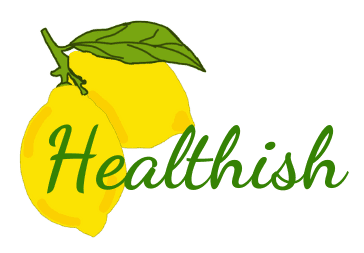
The Essential Guide to Omega 3, 6, and 9 Fatty Acids for Vegans: Benefits for a Healthier Mind and Body

Omega fatty acids are essential for overall health, especially omega-3, omega-6, and omega-9. These healthy fats each play unique roles, from supporting heart health to boosting brain function. Although vegans avoid animal sources, there are plenty of plant-based foods and supplements that can help you get these essential nutrients. Let’s explore how to incorporate them into your diet, and why a balance of omega fatty acids is key to feeling your best.
Understanding Omega Fatty Acids
- Omega-3 Fatty Acids: These are polyunsaturated fats essential for heart and brain health. The primary types of omega-3s include ALA (alpha-linolenic acid), which is plant-based, and EPA and DHA, typically derived from marine sources. However, vegan-friendly options for EPA and DHA are available, derived from algae.
- Omega-6 Fatty Acids: Also polyunsaturated fats, omega-6s support skin health, metabolism, and more. The most common omega-6 fatty acid is linoleic acid, found in many plant-based oils, nuts, and seeds.
- Omega-9 Fatty Acids: Omega-9s are monounsaturated fats, which the body can produce. While not essential, including them in your diet is beneficial. Common plant-based sources of omega-9s include olive oil, avocados, and almonds.
Benefits of Omega-3 Fatty Acids
Omega-3s are particularly beneficial for brain, heart, and inflammatory health:
- Supports Heart Health
Omega-3s help reduce inflammation and can improve cholesterol levels, promoting heart health. Studies show they also reduce blood pressure, which is essential for a healthy cardiovascular system. - Enhances Brain Function
Omega-3s are crucial for cognitive function, mood, and memory. They support the brain’s structure and may help reduce symptoms of anxiety and depression. - Reduces Inflammation
Omega-3s have anti-inflammatory properties that can alleviate joint pain, as well as conditions like arthritis and other inflammatory diseases. - Promotes Eye Health
Omega-3s are beneficial for eye health and may reduce the risk of dry eyes and other age-related eye conditions.
Best Vegan Sources of Omega-3s:
- Flaxseeds (and flaxseed oil)
- Chia seeds
- Walnuts
- Hemp seeds
- Algal oil (a vegan source of EPA and DHA, available as a supplement)
Benefits of Omega-6 Fatty Acids
Omega-6s play an important role in maintaining skin health, supporting cell structure, and managing inflammation when balanced with omega-3 intake:
- Supports Skin and Hair Health
Omega-6 fatty acids help retain skin moisture, reduce inflammation, and promote elasticity, making them especially helpful for those with dry skin conditions. - Promotes Metabolism and Energy Production
Omega-6s are important for maintaining a healthy metabolism, and they support the body in energy production and cell function. - Supports Bone Health
Some omega-6 fatty acids, like gamma-linolenic acid (GLA), are associated with stronger bones and may help reduce the risk of osteoporosis. - Helps with Hormone Balance
Omega-6s contribute to hormone production, helping the body manage mood, reproductive health, and stress response.
Best Vegan Sources of Omega-6s:
- Sunflower seeds and sunflower oil
- Safflower oil
- Pumpkin seeds
- Walnuts
- Tofu
Benefits of Omega-9 Fatty Acids
While omega-9s are non-essential (since your body can produce them), they offer benefits when consumed as part of a balanced diet:
- Improves Heart Health
Omega-9s can reduce “bad” LDL cholesterol while raising “good” HDL cholesterol, lowering the risk of heart disease. - Boosts Immune System
These fats support the immune system and have anti-inflammatory properties that protect against chronic inflammation and autoimmune conditions. - Supports Energy and Mood
Omega-9s are linked to improved energy and mental focus, and they may help reduce symptoms of mental fatigue.
Best Vegan Sources of Omega-9s:
- Olive oil
- Avocados
- Almonds
- Cashews
- Sesame oil
Striking the Right Balance
A balance between omega-3 and omega-6 fatty acids is key to good health. While omega-6s are beneficial, consuming them in excess without enough omega-3s can lead to inflammation. It’s helpful to focus on including a variety of omega-3 sources while moderating omega-6 intake.
Tips for Balance:
- Aim for a 1:1 to 1:4 ratio of omega-3 to omega-6, depending on individual needs.
- Incorporate a daily serving of omega-3-rich seeds or algal oil supplements.
- Use plant oils like olive oil and avocado oil, which contain omega-9s and are low in omega-6.
Vegan Omega Supplements
Plant-based diets can make it harder to get EPA and DHA omega-3s. Algal oil, made from marine algae, is an excellent vegan source of these omega-3s. Look for a supplement with both EPA and DHA if possible. Flaxseed or chia seed oil supplements are also widely available, providing ALA omega-3s, which the body can partially convert to EPA and DHA.
Tips for Including Omega Fatty Acids in a Vegan Diet
Incorporating omega-rich foods into your diet can be simple and delicious:
- Add Ground Flaxseed or Chia Seeds to smoothies, oatmeal, or salads. Just one tablespoon is a great source of omega-3s.
- Top Your Salads with Nuts and Seeds like walnuts, sunflower seeds, and pumpkin seeds.
- Use Olive Oil or Avocado Oil as a dressing or for light cooking to increase omega-9 intake.
- Try Algal Oil Supplements to meet your EPA and DHA needs without animal-based sources.
- Snack on Avocados, Almonds, and Cashews for an omega-9 boost that supports heart health and energy.
Final Thoughts
Omega-3, 6, and 9 fatty acids are powerful, health-enhancing fats that can easily be part of a vegan diet with the right foods and supplements. By keeping a balance, particularly between omega-3 and omega-6, you can support your heart, brain, and immune health while enjoying plant-based sources of these essential fats. Making these healthy fats a staple in your diet is a simple way to enhance your wellness and vitality—no animal products required!
Want to know more?
I'd love to hear from you. Leave your message in the form below.
